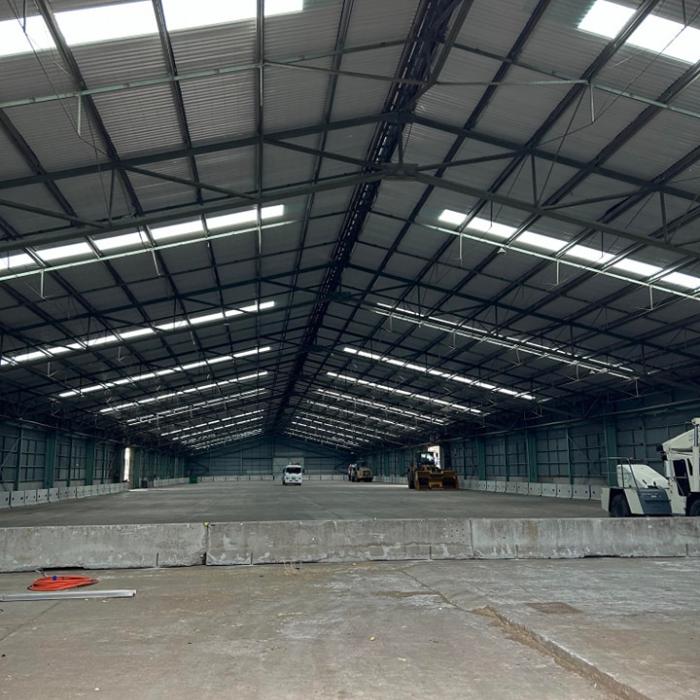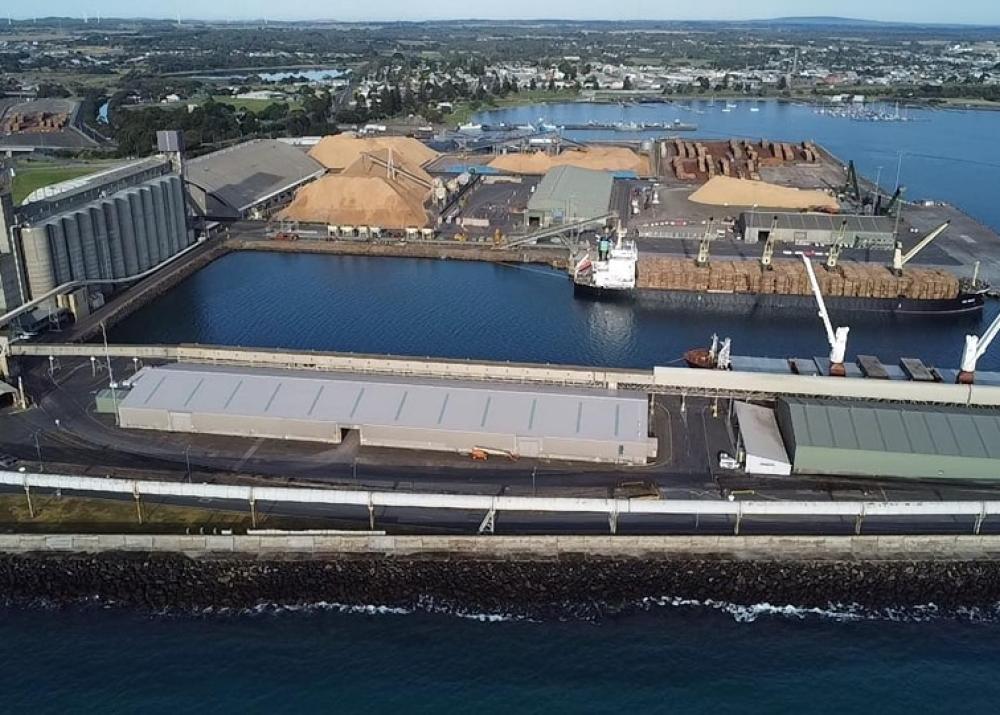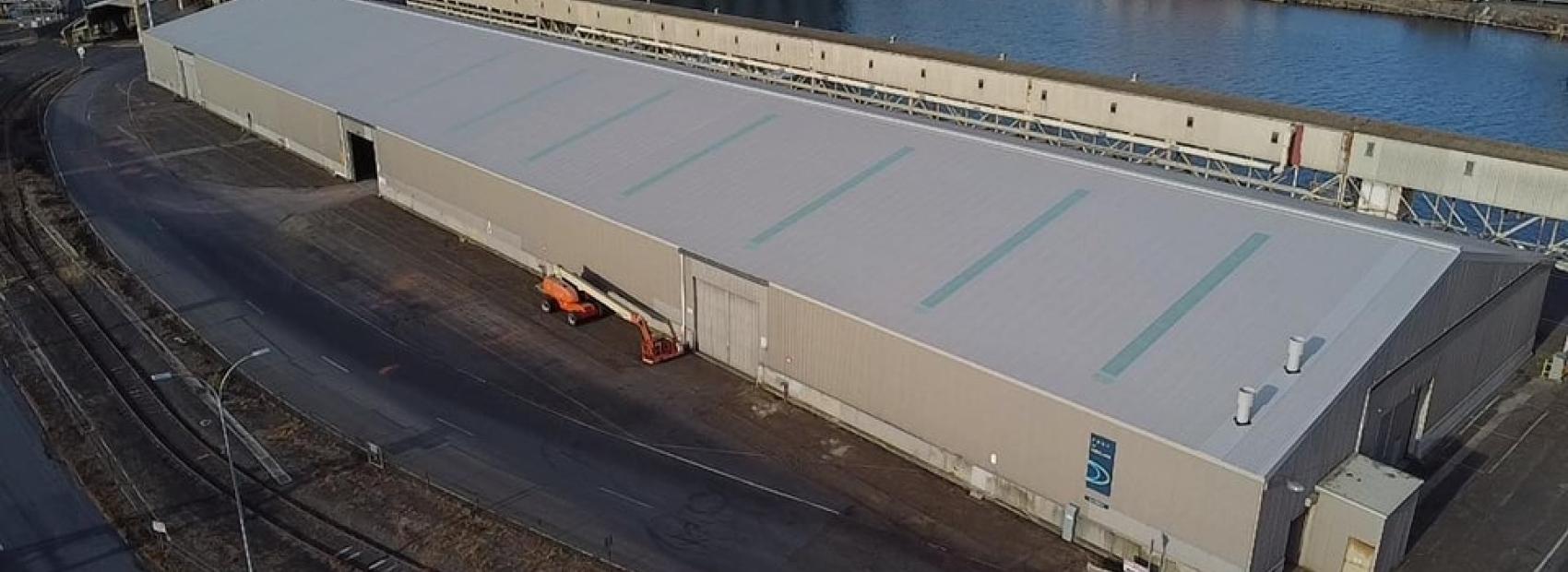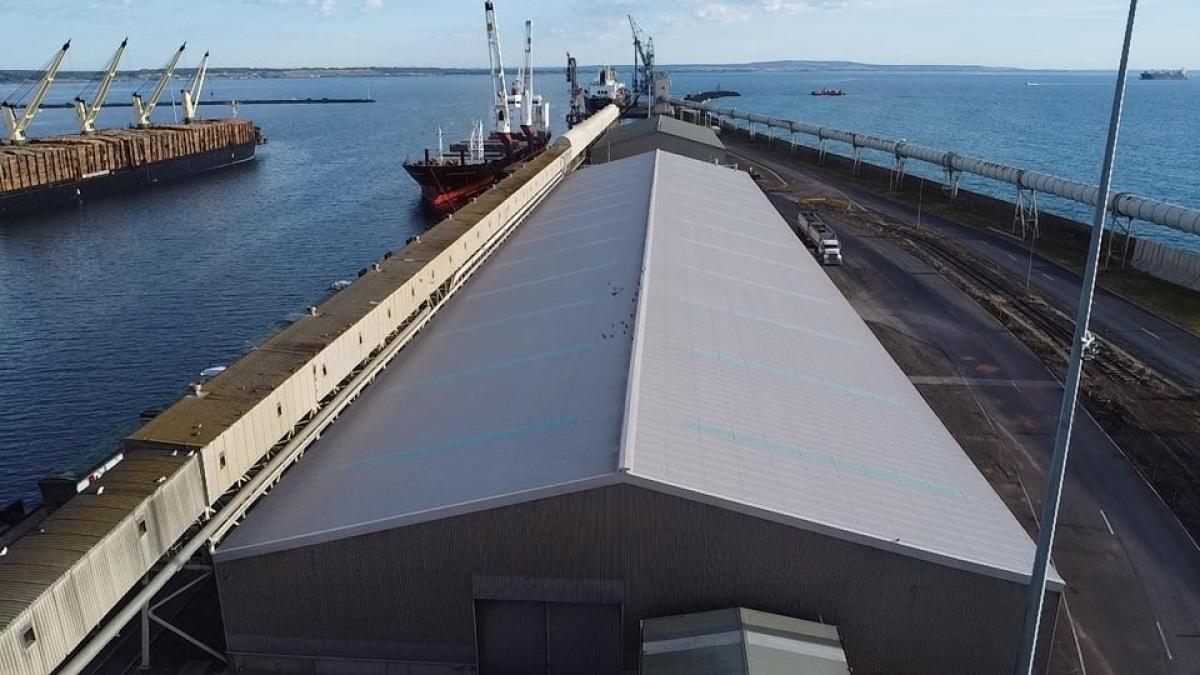Revamping Port of Portland’s Transit Shed
The primary objective for the Transit Shed renovation was to implement a roofing solution that would last longer than traditional materials while withstanding the corrosive coastal environment, and also reduce the need for artificial lighting.
“It was a replacement job for us on a 52-metre long building that we use to store various commodities within 100 metres of the ocean,” explained Michael Carr, Port of Portland Infrastructure Manager.
In addition to external environmental factors, the nature of the items stored in the transit shed meant the internal composition was just as important.
“It’s the largest roof that we’ve got here on site and it’s the closest roof to the ocean. The actual products that are stored inside the shed vary. We can get internal corrosive effects from the products that are stored, so the material needed to resist that sort of attack as well. Not just the external environment.“
Why PERMALITE LT7®?
Longevity and coastal resilience were the main factors influencing material choice for the transit shed.
“Our goal was really to find a product that would last over 25 years so we weren't frequently replacing the roof, which is why we chose aluminium,” Michael said. “We also added a product that would provide some light into the building for operational purposes, so we didn’t need as much artificial lighting in the future, aiding in decarbonisation. We don't want to be running electric-powered lights all the time.”
PERMALITE LT7® was chosen for its properties in handling aggressive environments, which are common at coastal and industrial sites like the Port of Portland. The aluminium base of PERMALITE® is particularly suited for environments that are corrosive to metals—such as those near water bodies and industrial zones prone to releasing corrosive byproducts.
"The aluminium base of PERMALITE® makes it a much better product for what we call 'aggressive' environments," explained Darryn Rampono, Business Development Manager at Lysaght.
This material's versatility is also a key feature, providing strength, water carrying capacity, and an economic installation process. Its high reflectivity and low emissivity contribute to improved thermal performance, reducing energy costs associated with heating and cooling the facility.
Measurable outcomes from smart material choices
The use of PERMALITE LT7® at the Transit Shed improved the operational environment, enhancing visibility and reducing moisture ingress, which had been a persistent issue with the previous roofing material.
“It's improved visibility inside the shed and it's removed all the moisture that was getting inside the shed prior to the roof being replaced,” Michael noted.
The long lifespan and minimal maintenance requirements of PERMALITE LT7® ensure that the Port will benefit from reduced lifecycle costs and improved operational efficiencies.
"This project has been a really positive success for the business and a great demonstration of why engaging at very early stages with all stakeholders is so critical and important," concluded Darren.
Building on success: Continued collaboration
The Port of Portland transit shed project showcases how strategic collaboration and material choice can lead to substantial operational advancements.
Looking forward, the Port is keen on continuing to partner with Lysaght, anticipating further projects that build on the success of the Transit Shed renovation. The success of this project sets the stage for future joint initiatives with Lysaght, ensuring sustained improvements and innovations in infrastructure development



